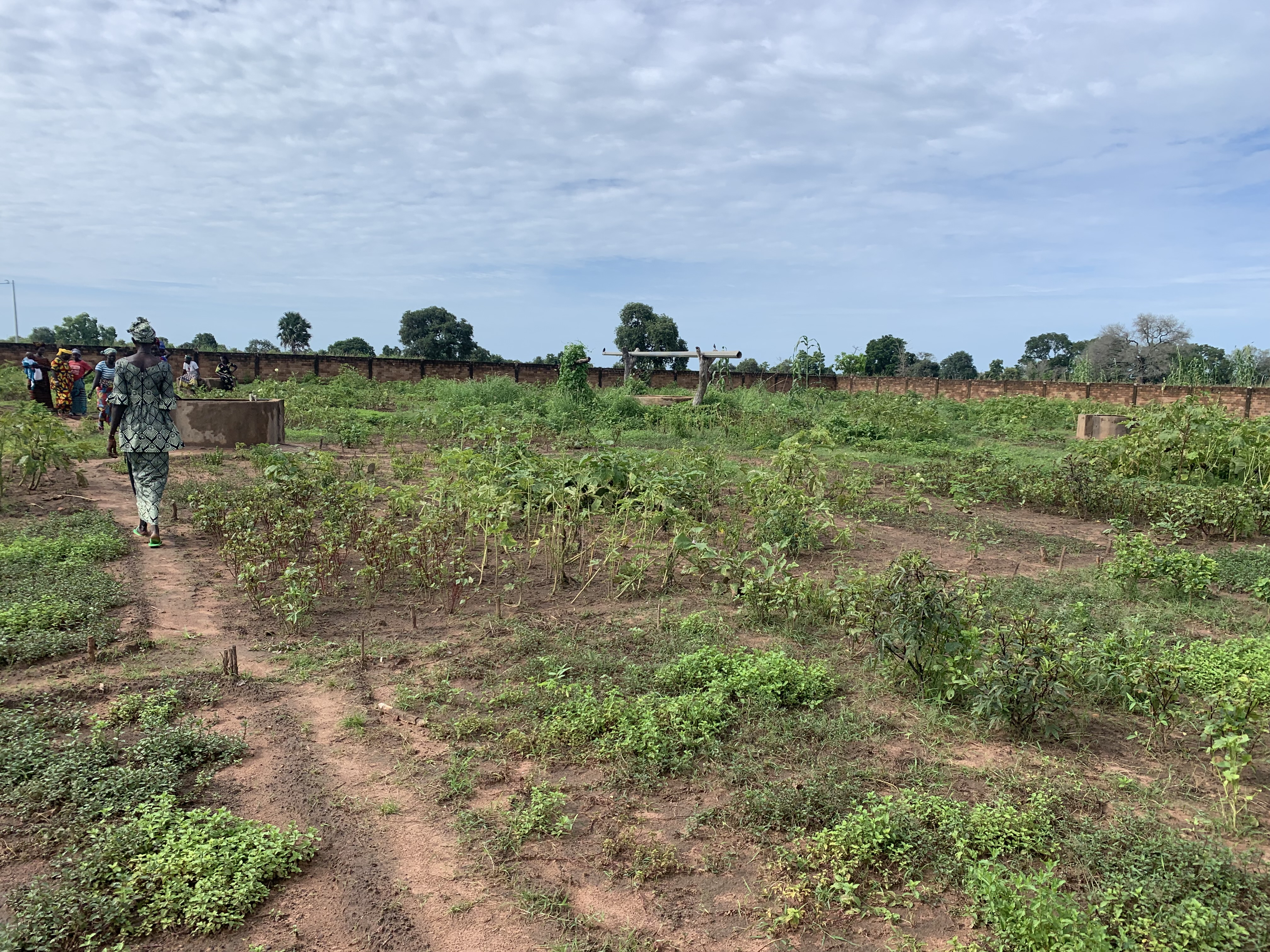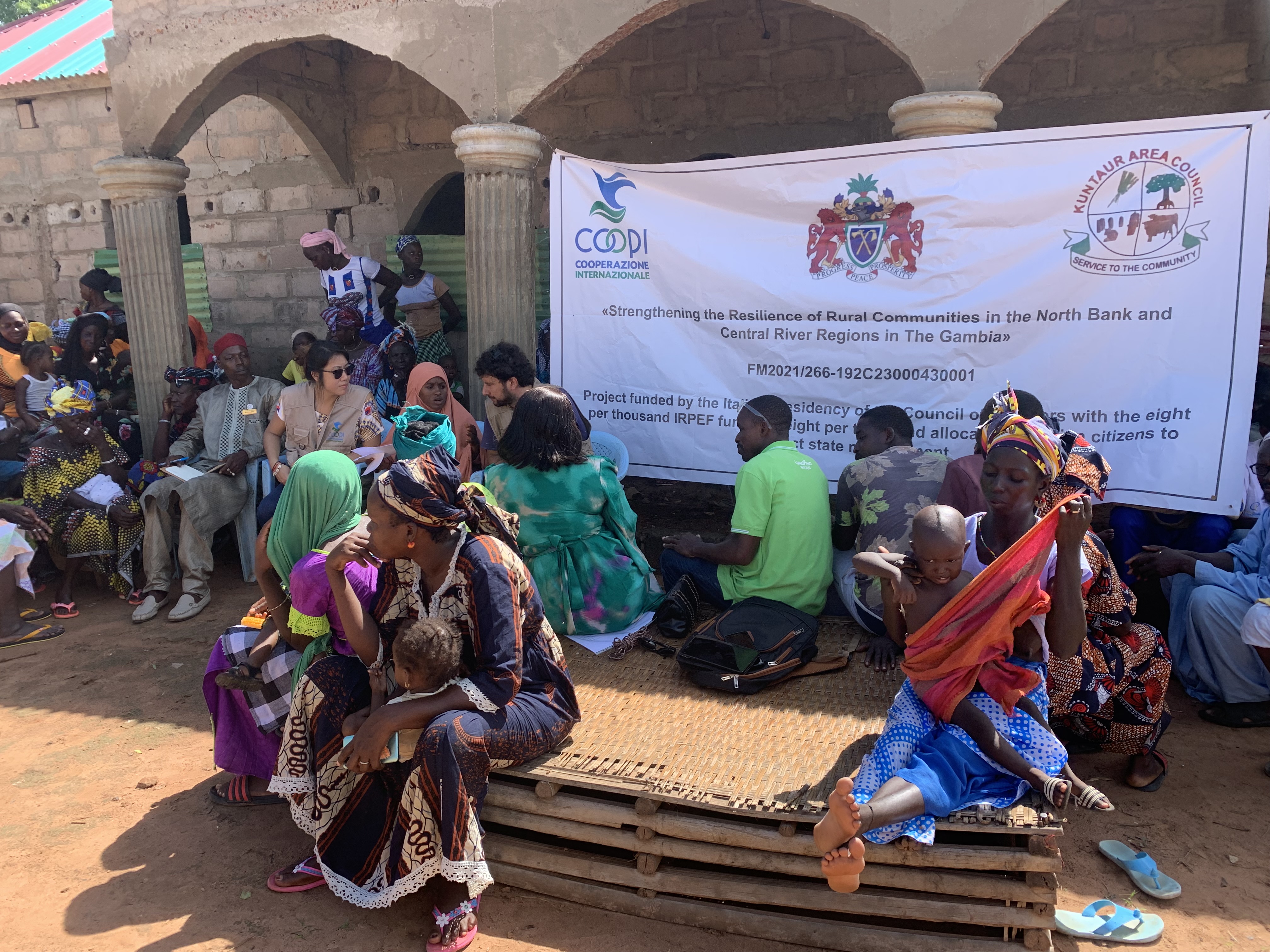30-10-2024 | di COOPI
Gambia. Community gardens as a source of economic resilience
Financed by the Italian Prime Minister's Office through the ‘Otto per mille’ initiative of IRPEF, COOPI launched the project ‘Strengthening the Resilience of Rural Communities in the North Bank and Central River Regions in The Gambia’. The initiative, which started in May 2024 and will end in 2025, focuses on improving food security and strengthening the economic resilience of Gambian communities through participatory local development and the implementation of sustainable agriculture.
In line with the participatory approach, the COOPI team worked with six local communities - Farafenni, Bereto, Kerewan, Bunaidu, Essau and Njoben - to discuss the project's objectives and outline the next steps to strengthen economic resilience. The result of this collective work was the identification of community gardens as a reliable resource for food and income.
To support these community gardens, COOPI provides essential gardening tools, seeds and develops water infrastructure. Through cash-for-work initiatives, community members earn wages while building water systems, storage facilities and fencing, actively contributing to the growth of the community garden.

Local stakeholders, including representatives of the Kuntaur and Kerewan area councils and the departments of Agriculture and Community Development, were also actively involved and participated in project presentations, emphasising the shared commitment to resilience and community-led growth.
This project also aims to improve the living conditions of women in the communities. Through training in gardening techniques, the women involved will be able to actively contribute to sustain food production and improve their economic independence.

COOPI has been active in The Gambia since 2018 where it intervenes to raise awareness about gender equality and the risks of migration, assisting returning migrants and in particular taking care of the mental health and psycho-social wellbeing of those who have suffered violence along the route to Europe. To date, more than 1,500 people have benefited from COOPI's work in this country.




 Gambia
Gambia